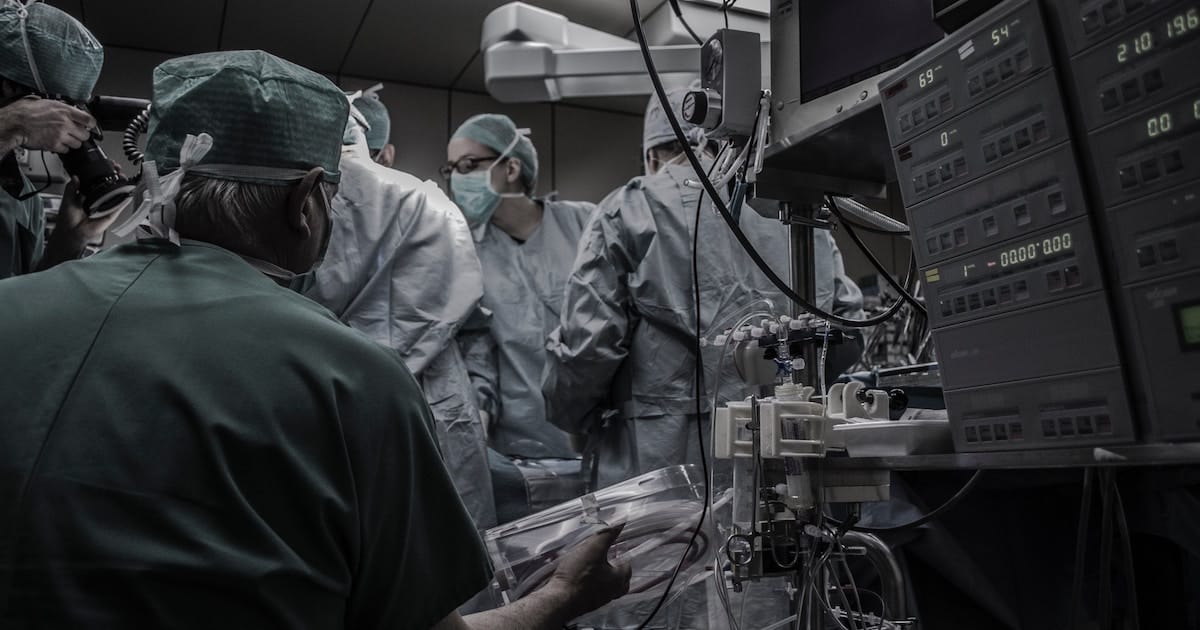We’ve all heard the witticisms about death and taxes as the world’s only inevitabilities and about humanity’s mortality rate continuing to stick stubbornly at exactly one hundred percent. We all know we are going to die and that we ought to prepare ourselves accordingly. But what’s equally inevitable and perhaps even more painful, is that people we love are going to die. Harder still, is that we may need to guide them or even make decisions for them in those difficult days that come between life and death.
End-of-life medical care is the subject of Kathryn Butler’s excellent new book. She writes from the perspective of an experienced trauma surgeon who is board certified in surgical critical care. She has seen death up-close and has seen the excruciating decisions it necessitates. At the same time, she has seen both the benefits and the drawbacks of the new technologies that sometimes serve to prolong life and sometimes serve to prolong death. “To honor God in the bleak setting of the ICU, we must clarify the expanse between life and death that our medical advances have blurred. The shift of dying from the home to the hospital challenges us to acknowledge the capabilities and limitations of the technology upon which we lean, and to embrace it in a fashion that keeps the gospel in focus. Compassionate, gospel-centered guidance in end-of-life care requires a consideration of medical technology through the lens of heaven. We must unravel the jargon and appraise them against the clarifying light of the Word.”
Put simply, dying has gotten far more complicated than it used to be, and we desperately need clarity, and this is what Butler so aptly provides. “My hope is that through this book, Christian believers grappling with decisions about life-prolonging measures can confront their situation with peace and discernment.” While medical professionals may benefit from her work, she’s written it especially for patients and loved ones as they face difficult decisions.
Between Life and Death is divided into three parts. The first and shortest frames the issue by discussing some of the new realities of death and dying, then looking to the Bible as our trusted source of wisdom and discernment. The second part takes a detailed look at the various organ-supporting measures that are common today—resuscitation, intensive care, mechanical ventilation, cardiovascular support, artificially administered nutrition, and so on. Each one gets a chapter-length treatment. The third part turns to issues of discernment at life’s end, and here Butler covers issues like hospice care, physician-assisted suicide, advance-care planning, and surrogate decision making.
The book has many strengths, the foremost of which is its deeply biblical foundation. Butler wishes to provide a guide that looks at these issues through the lens of Scripture, and she succeeds well. This is, in every way, a distinctly Christian book. Additionally, she writes about even complicated issues using language that is understandable even for those who, like myself, have little knowledge of medicine or biology. That makes this the kind of book pastors may wish to read and then keep on-hand for reference as they help others through dark valleys. It makes this the kind of book we will all benefit from reading as we get closer to death or as we prepare to help loved ones in their approach.
It is inevitable that at some point, each one of us will face difficult or even heartbreaking medical decisions. We may have to make decisions related to our own care or, even tougher, the care of someone we love. To prepare ourselves to make such decisions in a distinctly Christian way, we won’t do better than to read Between Life and Death. It will inform, encourage, strengthen, and equip us all to act in ways that honor our humanity while bringing glory to our God.










